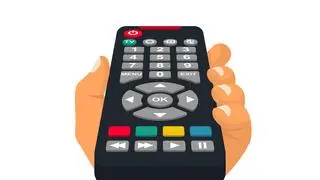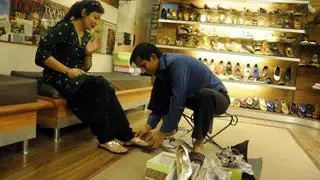Just last week, Dish TV got pulled up by the Advertising Standards Council of India (ASCI) over its advertisement claiming to have 50 per cent market share.
‘Half the nation loves Dish TV', went the contentious adLe. The advertising watchdog ruled that according to TRAI data, Dish only had 31.6 per cent of the market share, and hence it was a misleading claim.
With the list of complaints with ASCI mounting (there were 71 complaints in 2010), lawyers believe companies can save themselves a rap on the knuckles and potentially expensive lawsuits through preventive checks – like getting their ads vetted legally.
According to lawyer Safir Anand, senior partner and head of trademarks and contractual law at law firm Anand and Anand, there is already a growing trend among corporates to refer their ads to lawyers before putting them on air. He says at least 10 MNCs number among his clients.
Alok Agrawal, COO, SW Asia, Cheil (Samsung's ad agency), agrees legal ratification helps. “Wherever a product claims benefits in its features, showing it to a legal expert is necessary,” he says, adding that the agency has been in the habit of doing it for some time now. “For most of our clients, we always show the ad to their in-house legal divisions. Wherever necessary, we even outsource,” he says.
According to Anand, there is a growing number of counts on which advertisements can face objections. From misleading claims to surrogate advertising to parodies against celebrities to disparaging their competitor's products, there are several legal mines into which a company's advertisement can drop into with explosive consequences. Take the famous Dabur versus Marico case where Dabur's ad for Vatika oil showed a bottle that looked like the blue Parachute oil and made remarks against it that could be construed as disparaging. Marico, naturally, sued.
But that's only one half of the reason companies are approaching lawyers with their advertisements. The other growing trend, according to Anand, is to trademark-protect key elements of a company's branding as used in its advertisements. For example, a month ago ICICI trademark protected its jingle Dhin Chik Dhin Chik .
“Globally, there is more and more migration towards slogans and sounds as trademark,” says Anand. Now Indian companies are following suit. For instance, Anand cites how Hero Honda has protected its Desh Ki Dhadkan slogan as well as its recent Dhak Dhak Go copy. And, ICICI has protected the words ‘ Hum hain na '.
“Going forward, you can even colour-protect your brand,” says Anand. He gives examples of the way Cadbury has internationally colour-protected purple for its brand. Other examples are British Petroleum with green and Mars with its dog food brand Pedigree.
“In Pedigree's case, the yellow has been trademark-protected as Pedigree Yellow as it is not from the Pantone colours, but something that the company has created,” says Anand.
Usually, words, names, labels, acronyms and logos are given trademark status. But now, as he points out, colour and sounds are also increasingly being accepted as trademarks.
Meanwhile, image consultant Dilip Cherian, who is on the board of ASCI, hails the move by corporates to seek legal ratification. “It's a positive step, and going forward, even civil society could be involved,” he suggests.
According to Cherian, in the last two years, ASCI has got very proactive running campaigns all over the media and sensitising the industry itself to comply with guidelines. “We have been running a campaign internally so that the number of complaints would go up and we can be an effective watchdog. Earlier people would not know who to complain to and on what grounds. Now we have revamped our Web site and made it an easy process,” he says.
Meanwhile, Rediffusion's new president D. Rajappa, while agreeing that growing competition is leading to more reviews by the watchdog, feels there is no real need for legal ratification of every ad. “There is enough and more of due diligence, processes and checks within every advertising agency. We are aware of the guidelines and comply with them,” he reasons. “If on every count we are self-doubting and run to lawyers, we will not make much progress,” he says.
However, in some special instances, he agrees legal checks could be useful. As Alok Agrawal too explains, “In certain categories of advertising, especially in financial categories, there are lots of terms and jargon, so it might be better to take legal ratification.”
Agencies might chafe at their creative licence being repressed, but going forward, looks like a bit of keeping in line by the legal community could well become the order of the day.








Comments
Comments have to be in English, and in full sentences. They cannot be abusive or personal. Please abide by our community guidelines for posting your comments.
We have migrated to a new commenting platform. If you are already a registered user of TheHindu Businessline and logged in, you may continue to engage with our articles. If you do not have an account please register and login to post comments. Users can access their older comments by logging into their accounts on Vuukle.